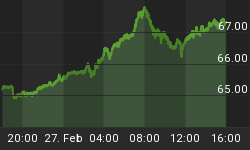While the Iraqi government has made overtures to its Kurdish counterpart in the north to end an oil standoff, much remains in doubt without an actual law keeping the industry in check - rules which this time the Kurds are pressing for rather than Baghdad.
For a long time, the northern Kurdistan region was seen as the most attractive oil market in the country but the latest bid rounds in December and subsequent contract signings in the south have made it suddenly "less clear that Baghdad actually needs an oil law with Kurdistan, because they're actually doing pretty well on their own," said David Bender, an analyst in the Middle East practice of the Eurasia Group's Washington office.
Iraq's government initially pushed for petroleum-sector legislation, but lately the Kurdistan Regional Government (KRG) has been motivated to act "so they don't get sort of left behind, with this new international oil interest in Iraq," Bender argued.
Thirty-eight companies from 17 countries have exploration and production contracts in the Kurdistan region, according to Ashti Hawrami, the KRG's national resources minister. Several medium and large discoveries have been made, while one private sector refinery has been built and another is almost finished, Hawrami noted in a Feb. 4 government press release.
Baghdad has never viewed oil contracts signed independently by the Kurds as legitimate and blacklisted companies involved in the northern region's oil fields from working in the south. Oil exports from the Kurdish area stopped last year when companies were not reimbursed.
In recent days, however, the government of Prime Minister Nouri al-Maliki has been considering covering the development costs of foreign firms working in the north, according to media reports, which also cite that oil exports would flow again soon from the north's Tawke field, operated by Norway's DNO and Turkey's Genel Energy.
The central government's ban on companies operating in the Kurdish area will probably remain until the implementation of an oil law, which outlines the sharing of profits, the signing of contracts and the role of Iraq's National Oil Company, Bender told OilPrice.com. He added the Kurds will presumably want to continue to forge contracts without Baghdad's involvement.
As of now, only small interests have been doing business with the KRG, "but if the Kurds ever want to attract major oil companies, they will have to come to some understanding with the Iraqi government," added Bender.
Baghdad's interest these days in reaching out to Irbil, capital of the Kurdish north, is "more politically based rather than anything having to do with oil," he maintained. With March 7 parliamentary elections looming, the Kurds may be the "king maker in whatever the next government is, and one of their prices is probably going to be some sort of progress on an oil law," he argued. He said eventually an oil bill will be passed but conceded it is "somewhat worrisome that there is no time table."
Without clearly defined rules in the petroleum sector, heightened international participation in the Middle Eastern country's oil market has forced dealing with certain issues through a budgetary process, Bender said. This year's budget spells out that provinces will be paid $1 per barrel for oil or gas they produce, while the provinces, namely the Kurdish north, have to agree to export oil or face a fine, he continued.
The whole country's proven oil reserves were last estimated at 115 billion barrels, and analysts have speculated Iraq will boast some six million to 10 million barrels a day over the next several years.
While different stakeholders argue over spreading around the oil wealth, some doubt the optimism of these predictions.
Robert Ebel, a senior adviser in the energy and national security program at the Center for Strategic and International Studies, a Washington-based think tank, told OilPrice.com he has heard Iraqis boast that more oil will flow from their country than from Saudi Arabia.
"I take all that with a huge grain of salt because I don't think it's doable," Ebel said, adding he has a "huge doubt" about how quickly Iraq can produce oil, sell it abroad and bring back money into the country. Responding to all of these contracts will take time, as well as a "tremendous amount of equipment" and personnel, he added.
And the key, Ebel said, is the fate of all that money. "Is it spent properly, or is it lost to the corruption and the variety of projects that don't really have that much importance to the economy?"
While the petroleum law remains paramount, the dispute over the Kirkuk region is also a major stumbling block that may cause problems for the nascent oil industry. Kirkuk finds itself front and center in the fight between Iraqis and Kurds over certain disputed territories.
"In the case of the Kurds, Kirkuk remains an extremely volatile situation. Right now, the U.S. is sort of forcing Kurdish and Arab security forces to cooperate and even that is highly controversial," Bender added. U.S. forces are set to depart next year. Whether such strategic cooperation between local militaries will continue is a lingering question, he warned, and "whether the security forces will start fighting is certainly a possibility."
By Fawzia Sheikh for OilPrice.com who focus on Fossil Fuels, Metals, Oil Prices and Geopolitics To find out more visit their website at: http://www.oilprice.com















